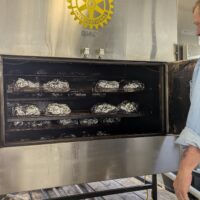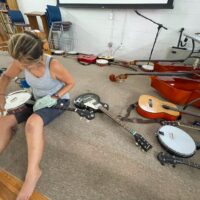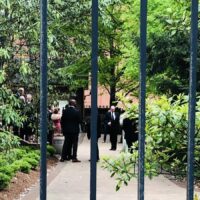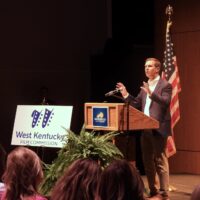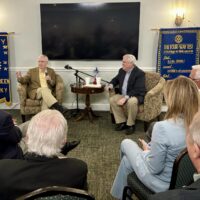Until Daniel Brechwald came along and questioned why a person couldn’t legally buy a six-pack of beer in Hopkinsville on a Sunday, I had never given much thought to whether the city prohibition could be overturned. That kind of change didn’t seem within reach because we’d been doing something the same way for a long time. Since 1959, to be exact.
My thinking was at least partly influenced by a mindset that stems from living in one place most of my life. Longevity can be both a strength and a weakness. I have strong institutional knowledge because I’ve been covering news in Hopkinsville for more than 35 years. I know, for example, how controversial it was in 2003 and 2005 when city council considered a tweak in the local law that eventually allowed a small number of restaurants to sell liquor — only by the drink — on Sundays.
But longevity can also mean there are times when a person fails to see what could change.
That lesson was clear Tuesday night when city council voted unanimously to allow Sunday alcohol sales in stores, bars and restaurants. I had expected that Brechwald’s well-researched proposal to end Sunday prohibition would be a hard one to win. I was wrong. The vote was unanimous and passed with relative ease. Council members didn’t try to push the decision until after the election, and no one organized any notable opposition.
In the past, local church leaders made the argument that selling alcohol on Sunday was unacceptable because of long-held religious traditions. But times change, and in this case it seemed that many people were opposed to something else — not being allowed to exercise their own choice about whether it’s OK to buy alcohol on Sunday.
Brechwald had an advantage in this situation because he is newcomer to Hopkinsville. An Army aviation officer at Fort Campbell, he moved to the city eight years ago. He wasn’t influenced by an unspoken assumption that this particular change wasn’t possible. It helped that he grew up in a different place with different traditions. As he told me in a recent interview, Brechwald came of age in a Wisconsin community where having a drink was socially acceptable — even on Sundays.
Given the example of ending our Sunday prohibition, this seems like a good time to think about other things in Hopkinsville that could change if we had the right perspective to pursue them with a fresh set of eyes.
Some changes would be more challenging than others but we ought to at least acknowledge issues that need to be addressed.
As one example, I cannot resist mentioning the ongoing deterioration of the old Phoenix Hotel building. It is an eyesore that speaks volumes because it sits at Ninth and Main streets, the symbolic center of downtown. The building has been vacant for decades. Recently glass was falling from second-story windows, which temporarily required caution tape that blocked a portion of the sidewalk. The property is the poster child for more effective property codes that would hold owners to account. We could do so much better.
Another problem affecting downtown is vagrancy. This is a complicated issue but anyone who pays attentions has seen the increase in the number of people experiencing extreme poverty, and possibly homelessness. Shopkeepers and others downtown have told me about problems they have with people who scavenge through garbage bins and leave food and trash in doorways. Panhandling has become common. Little encampments crop up from time to time.
These are just two examples of persistent problems in Hopkinsville that might be addressed with a good outcome if we thought more like a newcomer who isn’t willing to accept certain issues as our community’s fate. I’m sure Hoptown Chronicle readers can name several more issues.
The next time I’m tempted to think, “oh, it’s always been that way” or “change is too hard,” I’m going to try to challenge myself to wonder what someone like Daniel Brechwald would think. And do.
Jennifer P. Brown is co-founder, publisher and editor of Hoptown Chronicle. You can reach her at editor@hoptownchronicle.org. Brown was a reporter and editor at the Kentucky New Era, where she worked for 30 years. She is a co-chair of the national advisory board to the Institute for Rural Journalism and Community Issues, governing board past president for the Kentucky Historical Society, and co-founder of the Kentucky Open Government Coalition. She serves on the Hopkinsville History Foundation's board.

